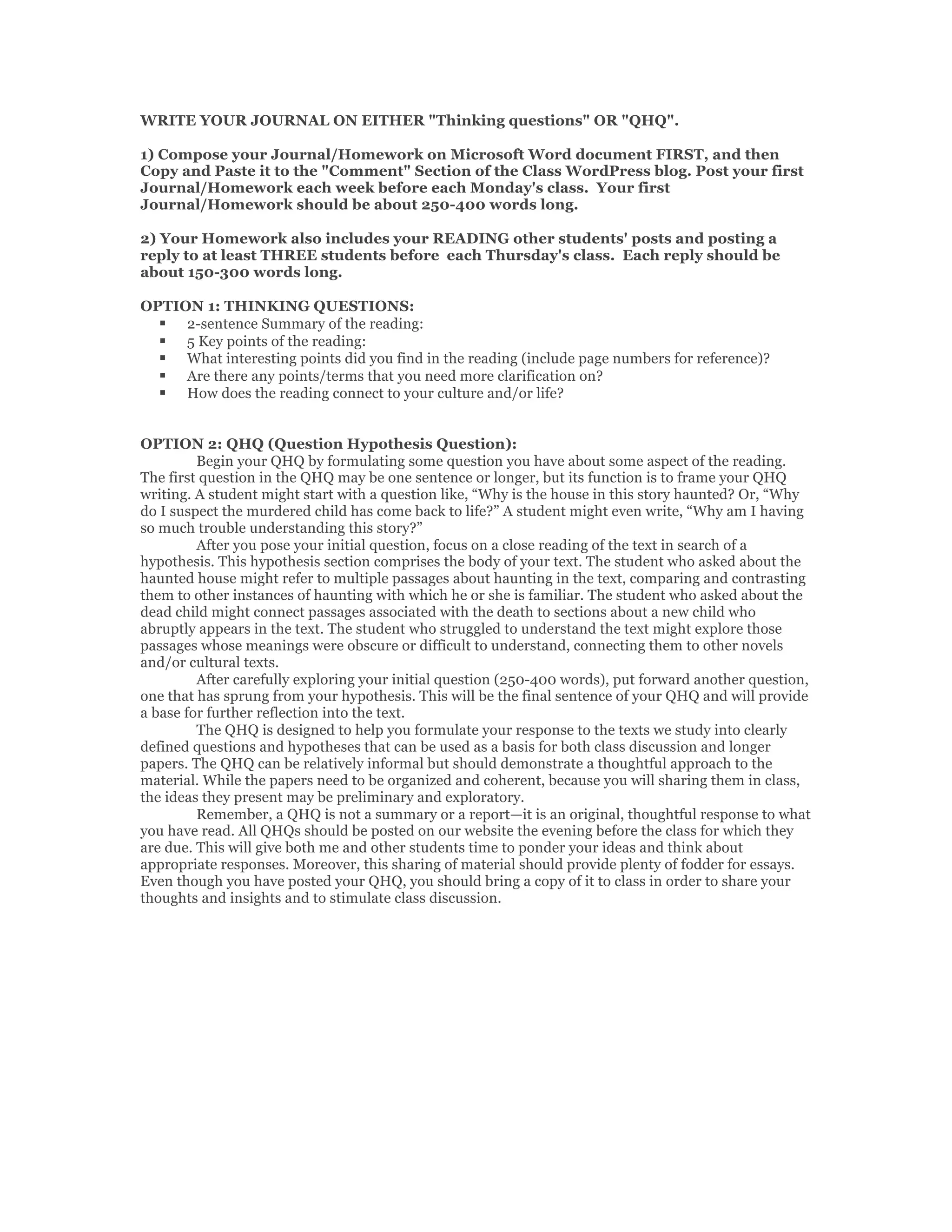Students must write a journal entry each week before Monday class on either "Thinking Questions" or "QHQ" (Question Hypothesis Question) format. Journal entries should be 250-400 words and posted to the class blog. Students must also reply to at least three other student posts before Thursday class, with each reply 150-300 words. The "Thinking Questions" format involves summarizing the reading, listing key points, interesting findings, and questions. The "QHQ" format starts with a question about the reading, develops a hypothesis through close analysis, and ends with a new question stemming from the hypothesis. QHQs should stimulate class discussion.
